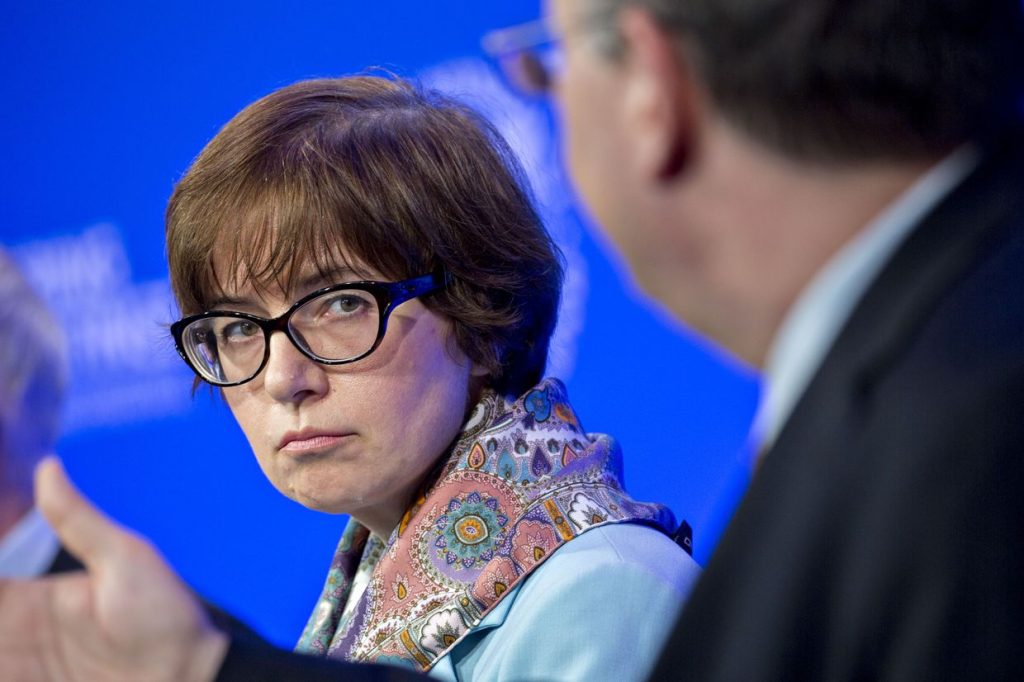Ksenia Yudaeva’s Unexpected Return to Washington
Ksenia Yudaeva, a former Deputy Central Bank Governor of Russia, has made a surprising move to the International Monetary Fund (IMF) headquarters in Washington, D.C. This transition has been notably under the radar, especially given that Yudaeva has been under U.S. sanctions since April 2022, following Russia’s full-scale invasion of Ukraine. According to TASS, Russia’s state news agency, Yudaeva, who previously served as an advisor to Russian Central Bank Governor Elvira Nabiullina, began working in person at the IMF in February 2024. Her appointment to represent Russia and Syria at the IMF was announced in November 2024, but she initially carried out her duties remotely. The U.S. Treasury Department, still under the Biden administration at the time, granted her permission to shift from remote to in-person work, a decision that has raised eyebrows and sparked discussions about the implications of this move.
The IMF Executive Board Dynamics
The International Monetary Fund’s executive board is a powerful institution, comprising 25 directors who are elected by member countries or coalitions. Each director has the right to vote, but their influence is largely determined by the financial contributions of their respective nations to the IMF. This structure ensures that countries with significant financial clout, such as the United States, have more sway over the organization’s policies and decisions. Despite the sanctions, the U.S. government’s decision to allow Yudaeva to work in Washington suggests a complex interplay of diplomatic and economic considerations. The Biden administration’s decision to grant her permission has not been explicitly detailed, leaving many to speculate about the rationale behind it.
Yudaeva’s Background and Role
Ksenia Yudaeva brings a wealth of experience and expertise to her new role. Her previous position as an advisor to Elvira Nabiullina, a respected figure in Russian economic circles, underscores her significance in shaping economic policy. Yudaeva’s transition to the IMF, particularly in such a politically charged context, is significant. Her presence in Washington could potentially influence the IMF’s approach to Russia and its economic challenges, especially given the ongoing tensions between the two countries. However, it is worth noting that the IMF operates independently and aims to maintain a balanced and objective stance in its dealings with member nations, regardless of political pressures.
The Political Context
The decision to allow Yudaeva to work in Washington came amid a period of heightened geopolitical tension. The Biden administration has been firm in its stance against Russia’s actions in Ukraine, imposing sanctions and other diplomatic measures. However, the move to grant Yudaeva permission to work in person at the IMF headquarters can be seen as a nuanced approach, possibly aimed at maintaining channels of communication and facilitating constructive dialogue. This period also coincided with President Donald Trump’s outreach to Moscow, aimed at brokering a peace deal in Ukraine. The political context of these decisions adds layers of complexity to understanding the motivations behind Yudaeva’s transition.
Russia’s Economic Crisis and the Revival of the Covid-Era Committee
As Russia braces for an economic crisis, the government has revived a commission that was last active during the peak of the Covid-19 pandemic. According to Russian Deputy Prime Minister Alexander Novak, the commission resumed its work in December 2024, focusing on nine key sectors and over 2,000 enterprises. This move highlights Russia’s ongoing struggle to manage its economy in the face of international sanctions and other challenges. The commission’s revival suggests a strategic approach to stabilizing critical industries and ensuring economic continuity, especially in a time of potential economic downturn.
Implications for the IMF and International Relations
Yudaeva’s return to Washington raises several questions about the future of IMF operations and international relations. While the IMF strives to remain an impartial financial institution, the presence of a sanctioned Russian official at its headquarters could complicate its relationships with other member countries, particularly those that have been vocal in their opposition to Russia’s actions. The move also reflects the broader geopolitical landscape, where economic and diplomatic strategies are often intertwined. As the IMF navigates this delicate situation, it will be crucial to balance its commitment to financial stability with the political realities of its member nations.












